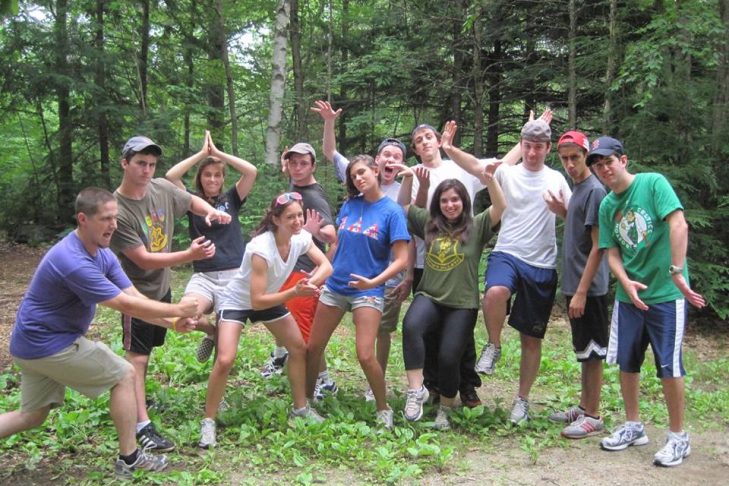This time of separation and cancellation is hard for all of us, but it could be argued that teenagers and young adults are most affected. Each stage of development desires a unique set of qualities to promote growth and learning.
As psychologist Erik Erikson says in his “Eight Stages of Psychosocial Development,” until we reach adolescence, our most significant relationships are our family members. Mothers, fathers, siblings and maybe some extended family members are all we want or need. Sure, socializing in these younger years provides connection and support, but it’s not the most crucial part of life for early childhood.
Once we reach adolescence, school, extracurricular programs, sports teams and camp become our world. This only increases in our teen years, in which peers and mentors become our main inspiration. We begin to build relationships independently from our families and understand our broader communities and how we fit into them.
These relationships remain our primary social connections into our young adult years. Until we create our own families, we seek community from peers, colleagues, romantic relationships and friends who become part of our inner circles. These connections and communities fuel teens and young adults alike.
Camp has played an essential role in the lives of many of these teens and young adults. And as camps begin to announce their plans for the summer, we have to acknowledge all the ways each age group benefits from the camp community.
For teens, this time away from family—separate from parents and siblings—is critical. Camp provides an opportunity for developmental growth unlike anything else. The safe environment that overnight camp provides allows campers to experience a unique sense of independence and an opportunity to learn who they are without the influence of parents or guardians.
And yes, college is another time, but camp? Camp is magical. You are mentored and guided from counselors only four years (or more) older than you. You are given a set of directions and asked to execute—walk to the dining hall, collect items and bring them to an activity—and do so independently. Camp is first and foremost fun, but the immersive and safe environment it provides is difficult (not impossible!) to replicate in the real world.
One of the key skills our teenagers gain from camp beyond the ability to make their beds and general independence is leadership skills in one of the most natural environments possible. This begins officially when becoming counselors-in-training (CIT), but it truly happens throughout one’s camp experience. There is nothing quite like this opportunity to hold authority, benefit from responsibility and use creativity to develop one’s leadership style, all while having a safety net of the staff above you. There is reassurance that you can take some risks, but ultimately know people still care about you and will catch you if you fall.
Where in workplaces in regular life does this exist? This loving, supportive opportunity is hard to come by in the “real world.” And the opportunities don’t end with being a CIT. So many teens and young adults go on to take jobs at camp as counselors, unit heads, specialty staff, administration and even camp directors. All of these roles offer transferable hard and soft skills that people take into their adult work lives. I know I did!
So, with the possibility of missing these opportunities at camp itself this summer, we will turn to our camp communities and leadership. Camps have been weighing options as they think through virtual summer offerings if camps can’t happen in person.
We are so fortunate that the Foundation for Jewish Camp (FJC) is viewing camp as not just a summer experience; FJC understands camp as year-round and lifelong. Camps are engaging with their communities in innovative ways. We can trust that this approach will continue as we move forward post-pandemic.
We have always known the camp connection is not limited to the summer, and now we are in a time in which we are going to see that concept come to fruition concretely. There will be opportunities, not only over the summer months, but into the year, for collaborating, leading, skill-sharing and, most important, promoting togetherness as only camp communities can.
This post has been contributed by a third party. The opinions, facts and any media content are presented solely by the author, and JewishBoston assumes no responsibility for them. Want to add your voice to the conversation? Publish your own post here. MORE



